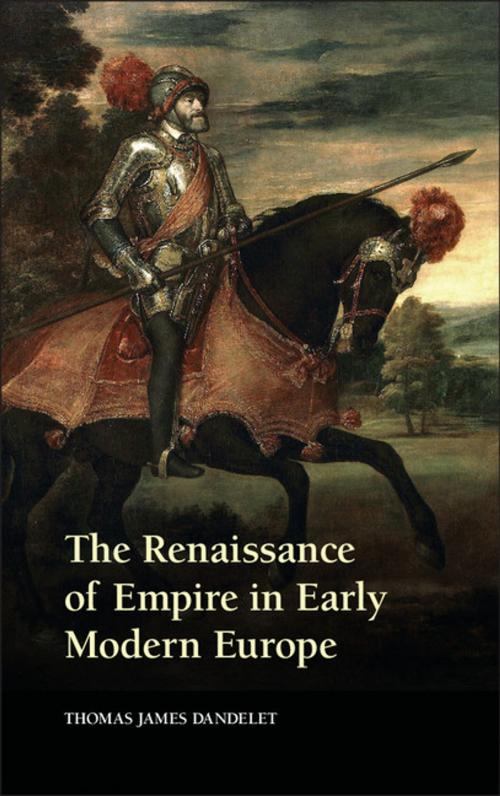| Author: | Thomas James Dandelet | ISBN: | 9781139903905 |
| Publisher: | Cambridge University Press | Publication: | April 14, 2014 |
| Imprint: | Cambridge University Press | Language: | English |
| Author: | Thomas James Dandelet |
| ISBN: | 9781139903905 |
| Publisher: | Cambridge University Press |
| Publication: | April 14, 2014 |
| Imprint: | Cambridge University Press |
| Language: | English |
This book brings together a bold revision of the traditional view of the Renaissance with a new comparative synthesis of global empires in early modern Europe. It examines the rise of a virulent form of Renaissance scholarship, art, and architecture that had as its aim the revival of the cultural and political grandeur of the Roman Empire in Western Europe. Imperial humanism, a distinct form of humanism, emerged in the earliest stages of the Italian Renaissance as figures such as Petrarch, Guarino, and Biondo sought to revive and advance the example of the Caesars and their empire. Originating in the courts of Ferrara, Mantua, and Rome, this movement also revived ancient imperial iconography in painting and sculpture, as well as Vitruvian architecture. While the Italian princes never realized their dream of political power equal to the ancient emperors, the Imperial Renaissance they set in motion reached its full realization in the global empires of sixteenth- and seventeenth-century Spain, France, and Great Britain.
This book brings together a bold revision of the traditional view of the Renaissance with a new comparative synthesis of global empires in early modern Europe. It examines the rise of a virulent form of Renaissance scholarship, art, and architecture that had as its aim the revival of the cultural and political grandeur of the Roman Empire in Western Europe. Imperial humanism, a distinct form of humanism, emerged in the earliest stages of the Italian Renaissance as figures such as Petrarch, Guarino, and Biondo sought to revive and advance the example of the Caesars and their empire. Originating in the courts of Ferrara, Mantua, and Rome, this movement also revived ancient imperial iconography in painting and sculpture, as well as Vitruvian architecture. While the Italian princes never realized their dream of political power equal to the ancient emperors, the Imperial Renaissance they set in motion reached its full realization in the global empires of sixteenth- and seventeenth-century Spain, France, and Great Britain.















